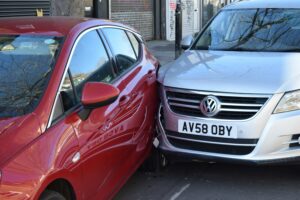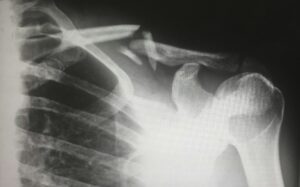
Car accidents can be overwhelming and stressful, especially with insurance claims. If you’ve been in a car accident in California, what factors can affect the value of your claim? Understanding these factors can help you navigate the process more effectively and ensure you receive fair compensation for your damages.
Table of Contents
ToggleTable of Contents
Severity of Car Accident Injuries
The severity of injuries sustained in a car accident is one of the most critical factors affecting the value of your claim. Serious injuries that require extensive medical treatment, surgery, or long-term care will generally result in higher compensation. Common injuries include:
- Whiplash: A neck injury caused by sudden movement.
- Broken Bones: Fractures can require surgeries and prolonged recovery.
- Spinal Injuries: These can lead to partial or complete paralysis.
- Traumatic Brain Injuries (TBI): These injuries can have long-lasting effects on cognitive and physical abilities.
According to the California Office of Traffic Safety, there were over 3,600 fatalities and more than 277,000 injuries from car accidents in 2023. These statistics highlight the prevalence of severe injuries resulting from car accidents in the state.
Medical Expenses
Medical expenses play a significant role in determining the value of a car accident claim. This includes:
- Emergency Room Visits: Initial treatment costs.
- Hospital Stays: Costs for extended hospital care.
- Rehabilitation: Physical therapy and other forms of rehabilitation.
- Medications: Prescription drugs required for recovery.
- Future Medical Costs: Ongoing medical care and treatments.
Insurance companies will consider both past and future medical expenses when evaluating a claim. Keeping detailed records of all medical treatments and expenses is crucial for supporting your claim.
Lost Wages and Earning Capacity
If your injuries result in time off work, you may be entitled to compensation for lost wages. This includes:
- Immediate Lost Wages: Income lost during recovery.
- Reduced Earning Capacity: If the injury affects your ability to work in the future or forces you to take a lower-paying job.
The more severe the injury, the higher the potential compensation for lost wages and reduced earning capacity.
Property Damage
The extent of damage to your vehicle is another essential factor. Insurance adjusters will assess the cost of repairs or the total loss value if the car is beyond repair. Providing repair estimates and receipts can support your claim for property damage.
Pain and Suffering
Pain and suffering refer to the physical pain and emotional distress caused by the accident. Calculating pain and suffering can be subjective, but it typically considers:
- Severity of Injuries: More severe injuries generally lead to higher pain and suffering compensation.
- Impact on Daily Life: How the injury affects your ability to perform daily activities.
- Emotional Trauma: Psychological impact, such as anxiety, depression, or PTSD.
Comparative Fault
California follows a comparative fault system, meaning the value of your claim can be reduced if you are found partially at fault for the accident. For example, if you are deemed 20% at fault, your compensation will be reduced by 20%. Insurance companies will investigate to determine each party’s level of fault.
Insurance Policy Limits
The insurance policy limits of both parties involved in the accident can also affect the value of your claim. California requires drivers to carry minimum liability insurance, but these limits may not cover all damages, especially in severe accidents. If the at-fault driver’s insurance is insufficient, you may need to pursue additional compensation through your own uninsured/underinsured motorist coverage.
Evidence and Documentation
Strong evidence and thorough documentation can significantly impact the value of your claim. This includes:
- Police Reports: Official documentation of the accident.
- Witness Statements: Accounts from people who witnessed the accident.
- Photographic Evidence: Photos of the accident scene, vehicle damage, and injuries.
- Medical Records: Detailed documentation of medical treatments and expenses.
The more comprehensive the evidence, the stronger your claim will be.
Legal Representation
Having an experienced personal injury attorney can significantly influence the outcome of your claim. An attorney can help gather evidence, negotiate with insurance companies, and represent your interests in court if necessary. According to the California Courts, having legal representation can increase the likelihood of receiving fair compensation.
Settlement vs. Trial
The decision to settle your claim or take it to trial can also affect its value. Insurance companies often prefer to settle out of court to avoid litigation costs. However, going to trial may result in higher compensation if the jury awards a larger amount. Your attorney can advise you on the best course of action based on the specifics of your case.
Understand The Factors and Hire A Top California Car Accident Attorney
Several factors can affect the value of your car accident claim in California, from the severity of your injuries to the evidence you provide. Understanding these factors can help you navigate the claims process and ensure you receive fair compensation. Remember to keep detailed records and seek medical attention. Consulting with a car accident attorney will maximize your claim’s value.
For more information, you can refer to resources such as the California Department of Insurance and the National Highway Traffic Safety Administration (NHTSA).
By being informed and proactive, you can better handle the complexities of a car accident claim and work towards a fair settlement. Make sure to contact us at M&Y Personal Injury Law to help you get what you deserve.
—-
Related Posts:
Can I Be Compensated For Pre-Existing Conditions After A Car Accident?




